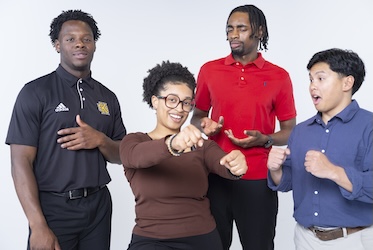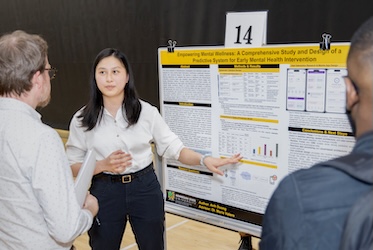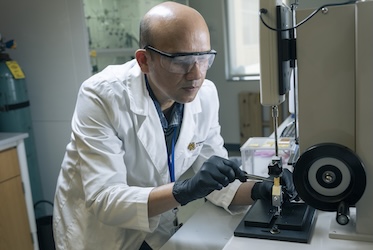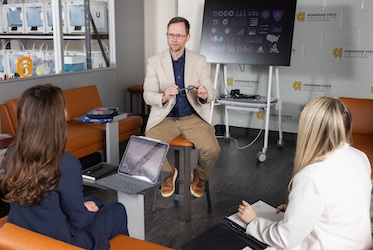
Lessons in Learning
KENNESAW, Ga. | Apr 6, 2020
Students make transition to remote instruction
For Keeley Ringham, it was difficult to truly appreciate the Kennesaw State campus experience until she didn’t have it anymore.
A business management student in the final year of her undergraduate career, she along with thousands of students in March were faced with the sudden shift to a remote learning as universities nationwide adjusted practices in an effort to combat the COVID-19 pandemic. Previously sharing classrooms with her professors and peers, she made the transition to a fully online model to maintain her academic schedule.
“To be honest, the transition was humbling,” Ringham said. “You don't realize how much you love interacting with your classmates, having the ability to take notes in class or even speaking to professors face-to-face until you can't anymore. However, it has made KSU grow even fonder in my heart as I wrap up my classes and look to my life after graduation.”
It didn’t take long before things felt normal, she added. Professors made themselves available via phone and email, and one of her courses began to utilize a video chat platform, allowing everyone to meet live just as they were in a classroom. Other courses enabled students to connect via non-graded discussion boards, where questions weren’t just limited to the coursework.
“I loved the boards because even through times of isolation you don’t feel alone and you know that your classmates are sharing your experience,” she said. “It also allowed our professors to provide extra flexibility as they learn what our experiences have been during this time.”
Like Ringham, several KSU students championed the transition to remote learning.
Claudia O’Donnell, an accounting and management student, knows how daunting of a task college may seem for foreign-born students. Originally from South Africa, she has been an international peer leader at KSU for four years. Following the switch to remote learning, she shared tips on how to succeed while taking online courses with KSU's Global Village to ensure the transition went smoothly.
Kaan Cubukcu, a second-year political science major, said that while the transition was difficult, remote learning taught him how to stay stress-free by finding new ways to connect with friends via online games.
Elisabeth Petit-Bois, a software engineering student, said remote learning has taught her time management and revealed her optimal learning style. In the online environment, she can learn at her own pace, rewind videos she didn't understand at first, search terms and further investigate topics that capture her attention.
Ziggy Kolker, vice president of student leadership with the Center for Young Adult Addiction and Recovery, said he initially feared that the center would be in jeopardy since community and connections were its two foundations. However, technology has allowed the center to maintain its sense of community through online recovery meetings and virtual one-on-one counseling sessions. During the transition, Kolker adopted a new routine and devoted space in his apartment for his studies.
“This individual and community support has alleviated my stress surrounding academics by allowing me to discuss my stressors with other students who can empathize, while also allowing me to be of service to them in return,” Kolker said. “I have learned that social distancing does not mean social isolation, and that I may continue to rely on the members of the CYAAR to be there for me as I will be for them.”
– Travis Highfield
Photos by Rob Witzel
Related Stories

Kennesaw State to revive bathtub race tradition with new video game

Passions spark innovation at Kennesaw State Symposium of Student Scholars

Kennesaw State researcher tackling sustainability through use of transparent wood

Kennesaw State marketing students apply research skills to the real world by assisting nonprofits
A leader in innovative teaching and learning, Kennesaw State University offers undergraduate, graduate, and doctoral degrees to its more than 47,000 students. Kennesaw State is a member of the University System of Georgia with 11 academic colleges. The university’s vibrant campus culture, diverse population, strong global ties, and entrepreneurial spirit draw students from throughout the country and the world. Kennesaw State is a Carnegie-designated doctoral research institution (R2), placing it among an elite group of only 8 percent of U.S. colleges and universities with an R1 or R2 status. For more information, visit kennesaw.edu.















